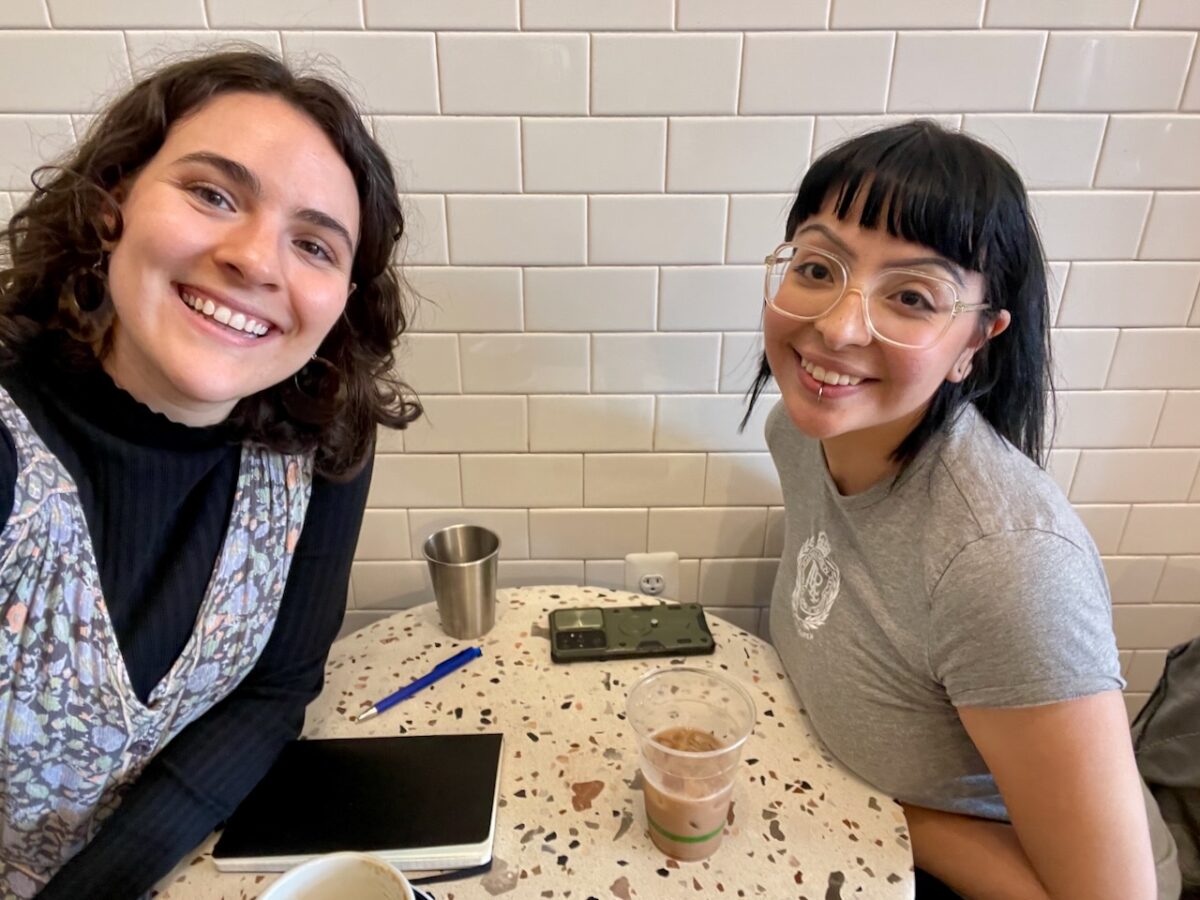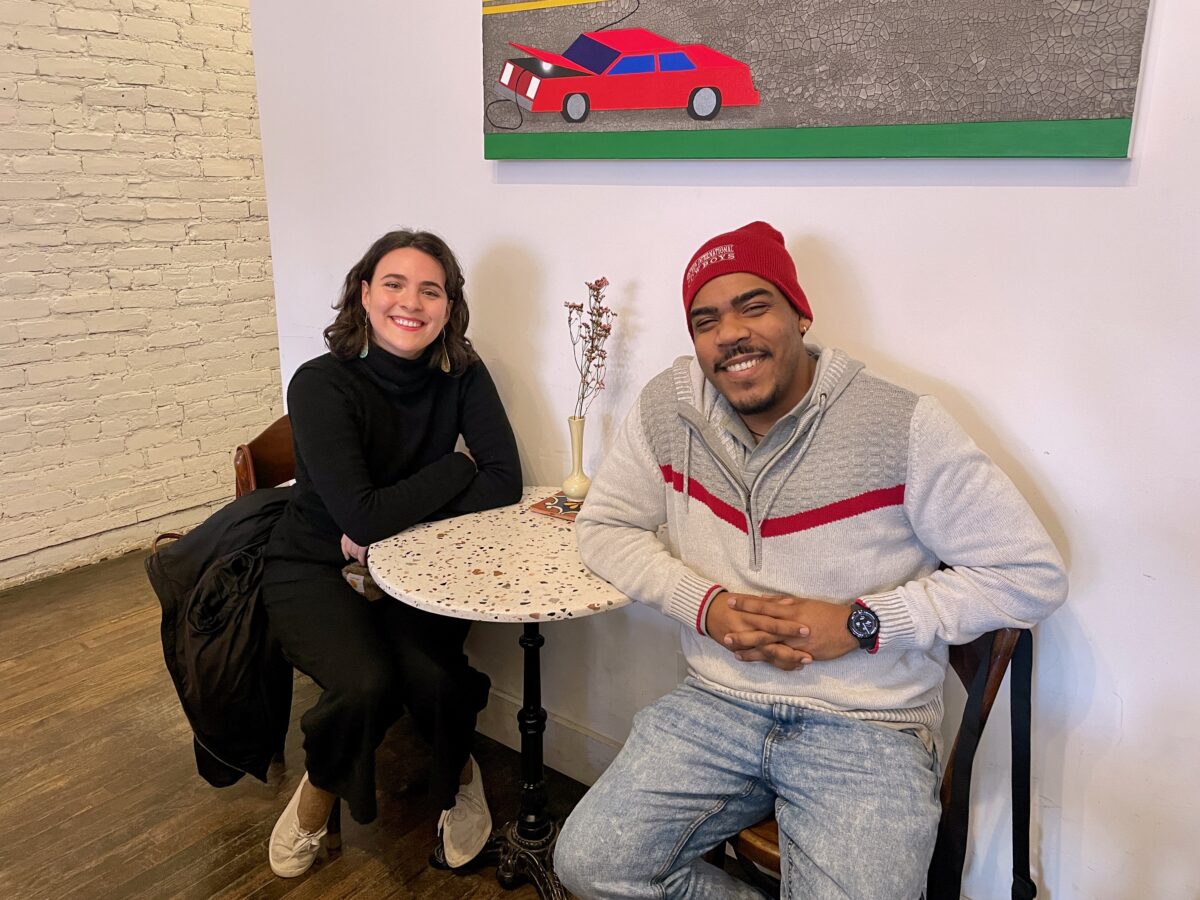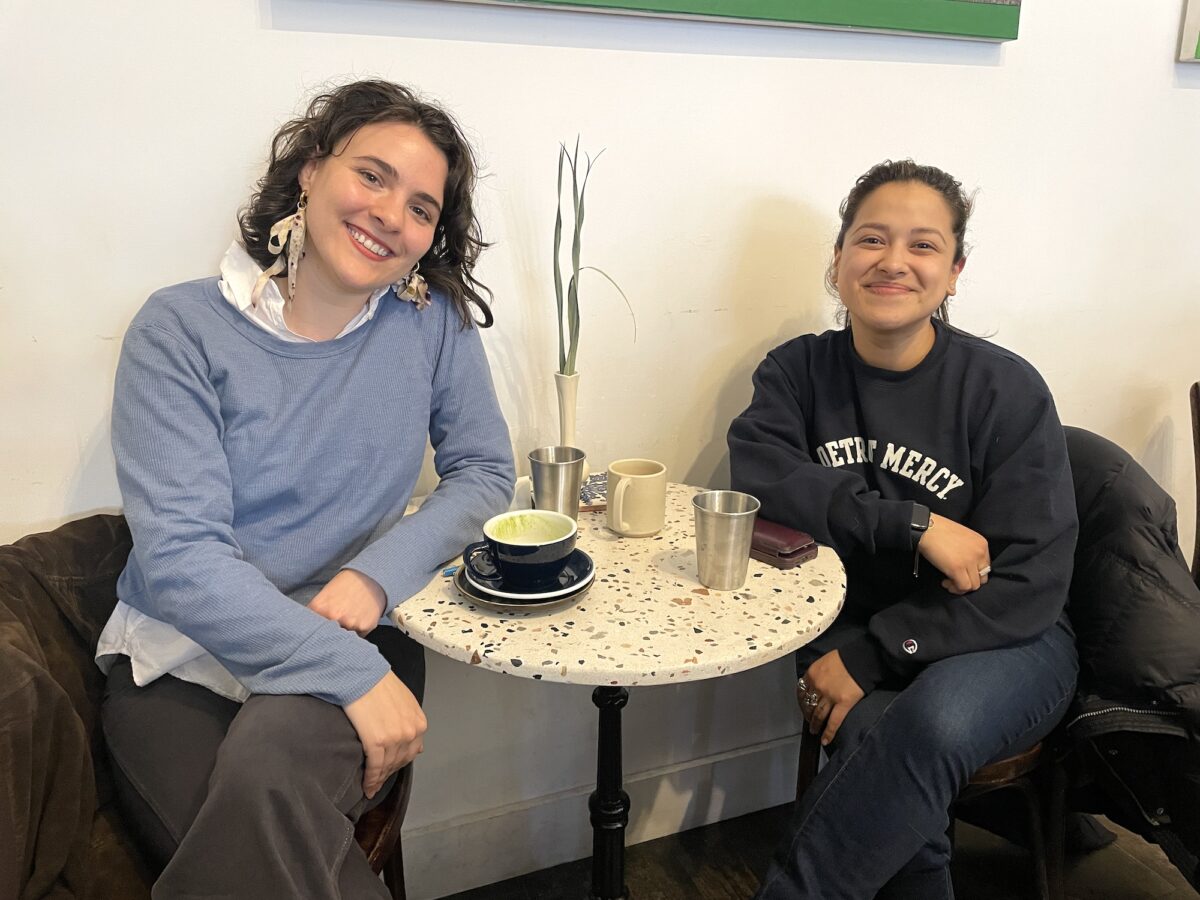Overview:
-“It’s really fun to get to meet all these people in Southwest who directly affected me growing up in the community as a small kid,” says Andrea Meza.
-Meza chats with Planet Detroit about her career as a caseworker and journalist.
- Meza advocates for media inclusivity, urging outlets to welcome new journalists and embrace diverse narratives.
For journalist and caseworker Andrea Meza, storytelling is more than a career — it’s a way to reclaim narratives and uplift the voices of her community.
Meza is driven by a passion for authentic storytelling: stories that reflect the real lives, challenges, and triumphs of Detroiters. Whether she’s covering water infrastructure failures or the cultural richness of lowrider communities, Meza is rewriting the script on what it means to be seen and heard in journalism.
Meza finds her voice
Meza, originally from Illinois, moved to Detroit’s Southwest neighborhood at age 8 before later settling in Woodhaven. At Woodhaven High School, she began writing for the student newspaper.
She felt the culture shock moving from a low-income Chicago suburb to a mostly white, affluent school, she told Planet Detroit.
“I remember walking in and feeling like I was in a Disney movie,” Meza said.
She went on to major in journalism with a concentration in broadcast at Wayne State University, becoming the first student to co-major in Latino/a and Latin American studies, she said. Meza, 26, graduated from Wayne State in 2023.
“I was shocked Wayne didn’t have a Latino Studies major,” Meza said. “It’s cool to now see more people doing it, especially now that civil rights education is being hit so badly.”
Through Wayne State’s Center for Latino Studies, Meza connected with the United Community Housing Coalition, a nonprofit where she works to help low-income Detroiters secure housing.
She began by supporting families placed in hotels, helping them transition into permanent homes. Eviction cases in Southwest are rising, she said.
“Almost everybody there are Dominican or Puerto Rican. They’re always like, we need you to come translate,” Meza said, referring to residents of affordable housing in the Springwells neighborhood.
Welcome to Café y Chisme, where we provide the café, and you provide the chisme. This is a casual event every other Friday with me, Planet Detroit reporter Isabelle Tavares. I aim to speak with Southwest community members about the environmental and public health challenges (and wins!) in our communities. These 45-minute conversations take place at cafes across Southwest Detroit. Whether you’re a community health worker, a truck driver, a school teacher, a newly arrived immigrant, lo que sea, I want to learn from you!
To participate, please sign up here for a 45 minute time between 9 a.m. to 5 p.m.
Coming full circle in Southwest Detroit
Recently, the Detroit Free Press picked up Meza’s coverage of the community response to a 54-inch water main break, originally published in El Central.
The story brought her full circle, she said: while reporting, she visited the Urban Neighborhood Initiatives, a nonprofit she frequented as a child that develops youth, land, and the local economy.
The organization’s basement, once a summer space for art projects and playground games, is where she interviewed community leaders in a professional setting.
“It’s really fun to get to meet all these people in Southwest who directly affected me growing up in the community as a small kid,” Meza said.
MORE FROM OUR CAFE Y CHISME SERIEs
Café y Chisme No. 4: Victor Jimenez on environmental organizing in Southwest Detroit
Victor Jimenez, raised in Southwest Detroit, learned firsthand about the cumulative impact of pollution from truck traffic and oil refineries. Now, as a community organizer with the Michigan League of Conservation Voters, he advocates for environmental justice.
Café y Chisme #3: Gabriela Santiago-Romero tackles climate change, puts community first in southwest Detroit
Detroit Councilmember Gabriela Santiago-Romero is committed to tackling climate change and advancing environmental policy, driven by her upbringing in poverty and the lessons from her teachers on the significance of advocating for power at all levels of government.
Café y Chisme: Planet Detroit’s Southwest community reporter wants to chat with you!
Welcome to Café y Chisme, where we provide the café, and you provide the chisme. This is a casual event every other Friday with me, Planet Detroit reporter Isabelle Tavares. I aim to speak with Southwest community members about the environmental and public health challenges (and wins!) in our communities. These 45-minute conversations take place…
For Meza, journalism is a tool to help people feel seen. A recent story on lowrider culture stemmed from a childhood memory of a subject that others have framed negatively, she said.
“Low riders aren’t a bunch of gang members,” Meza said. “They’re just guys who love cars, drink a beer, and hang out with their family.”
While she said larger news outlets can tell good stories, Meza believes there’s power in telling them from within the community.
“I don’t know if they’ll ever truly get it,” she said.
She calls on all media — from legacy newspapers to small nonprofit news — to open their doors to new journalists and more inclusive storytelling.
“I feel like the big ones, especially, have a strict regimen of how things should be written,” Meza said. “There’s so much nuance in the community that it’s like, ‘how do I really tell this story?’”





